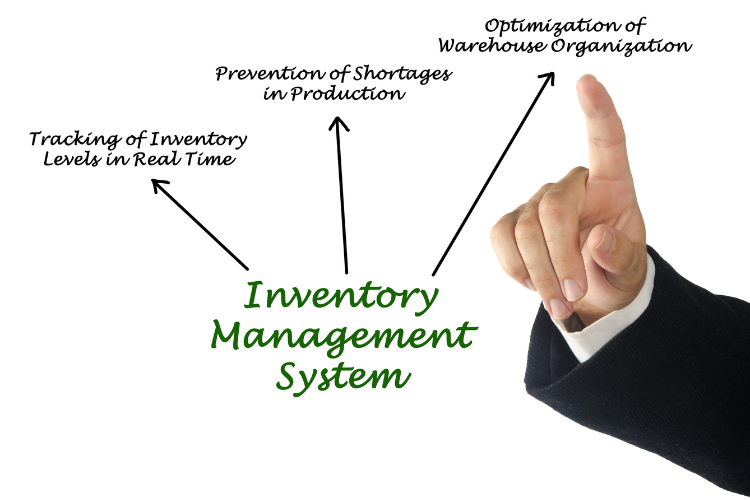In the fast-paced world of small businesses, effective inventory management is a linchpin for success. Ensuring that products are available when customers want them while avoiding unnecessary overstock or stockouts requires careful planning and execution. Let’s delve into the intricacies of small business inventory management, exploring common challenges, benefits, best practices, and the future landscape.
Introduction
Definition of Small Business Inventory Management
Small business inventory management reverses to overseeing, controlling, and organizing a company’s stock. It involves maintaining optimal stock levels, reducing holding costs, and ensuring products are available for customers.
Importance of Efficient Inventory Management
In the dynamic business environment, where customer expectations are high, efficient inventory management becomes a cornerstone for meeting demand promptly. It impacts the bottom line and plays a pivotal role in customer satisfaction and retention.
2. Common Challenges
Limited Resources
Small businesses often operate with limited resources, making it difficult to invest in robust inventory management systems. This limitation can lead to manual errors, impacting overall efficiency.
Inaccurate Tracking
Inaccurate tracking of inventory levels can result in overstock or stockouts. This not only affects cash flow but can also lead to dissatisfied customers.
Overstock and Understock Issues
Finding the right balance b/w having ample stock to meet demand and avoiding excess inventory can take time and effort. Overstock ties up capital, while understock can result in lost sales opportunities.
3. Benefits of Effective Inventory Management
Cost Savings
Implementing efficient inventory management practices can lead to significant cost savings. Reducing holding costs, minimizing the risk of stockouts, and optimizing order quantities contribute to a healthier bottom line.
Improved Customer Satisfaction
Consistently having products in stock enhances customer satisfaction. Timely deliveries and accurate order fulfillment build trust, encouraging repeat business.
Enhanced Decision-Making
Access to real-time data and insights from advanced inventory management systems empowers businesses to make informed decisions. From identifying popular products to optimizing reorder points, these insights are invaluable.
4. Choosing the Right Inventory Management System

Understanding Business Needs
Selecting an inventory management system begins with understanding the business’s unique needs. Consider factors such as the type of products, sales volume, and scalability.
Features to Look for
A robust inventory management system should offer features such as real-time tracking, automated reorder points, and integration capabilities with other business tools like accounting and e-commerce platforms.
Scalability
As a business grows, its inventory management needs to evolve. Choosing a scalable system ensures that it can adapt to changing requirements.
5. Implementing Best Practices
Regular Audits
Regularly auditing inventory helps identify discrepancies and ensures accurate tracking. This practice is crucial for maintaining data integrity.
Forecasting and Planning
Implementing forecasting tools allows businesses to anticipate demand, preventing both overstock and stockouts. Strategic planning based on accurate forecasts is key.
Supplier Relationship Management
Building strong relationships with suppliers fosters reliability and flexibility. Transparent communication and collaboration contribute to a smoother supply chain.
6. Technological Solutions
Inventory Management Software
Investing in inventory management software streamlines processes reduces errors, and provides real-time insights. Cloud-based solutions offer accessibility from anywhere.
Barcoding Systems
Barcoding systems enhance accuracy in tracking inventory levels, speed up order processing, and minimize human errors.
Integration with Other Business Tools
Seamless integration with accounting, point-of-sale, and e-commerce platforms ensures a cohesive business operation, minimizing manual data entry.
7. Case Studies
Success Stories of Small Businesses
Highlighting success stories showcases the tangible benefits of effective inventory management. Examples of businesses that transformed their operations through efficient stock control provide inspiration.
Lessons Learned from Failures
Examining instances where businesses faced inventory management challenges and lessons learned from those failures offer valuable insights for others.
8. Future Trends
Automation and Artificial Intelligence
The future of inventory management lies in automation and AI, with smart systems predicting demand, optimizing stock levels, and enhancing overall efficiency.
Sustainable Practices
Sustainability is becoming a crucial aspect of inventory management. Implementing eco-friendly packaging and reducing waste contribute to a positive brand image.
Integration with E-commerce Platforms
As online sales continue to rise, integrating inventory management systems with e-commerce platforms becomes essential for seamless order processing.
9. Tips for Small Business Owners
Start Simple
For small businesses with limited resources, starting with basic inventory management practices and gradually scaling up is a prudent approach.
Training Employees
Ensuring that employees are well-trained in inventory management systems and procedures is essential for successful implementation.
Continuous Improvement
Inventory management is an ongoing process. Regularly reviewing and improving practices based on feedback and changing business dynamics is key to sustained success.
Conclusion
Recap of Key Points
Effective small business inventory management is a multifaceted endeavour, encompassing careful planning, technology adoption, and continuous improvement.
Encouragement for Implementation
Encouraging small business owners to take steps towards efficient inventory management can significantly impact their bottom line and pave the way for sustained growth.
Frequently Asked Questions (FAQs)
Q: Can small businesses afford advanced inventory management systems?
A: Yes, many affordable options cater specifically to the needs of small businesses. Cloud-based solutions often offer flexible pricing plans.
Q: How often should inventory audits be conducted?
A: The frequency of audits depends on the business’s size and nature. However, conducting audits at least quarterly is advisable.
Q: What role does forecasting play in inventory management?
A: Forecasting helps businesses predict demand, allowing them to adjust stock levels accordingly, minimizing overstock and stockouts.
Q: Are there sustainable practices for inventory management?
A: Yes, businesses can adopt sustainable practices such as eco-friendly packaging, reducing waste, and choosing suppliers with environmentally friendly practices.
Q: Is it necessary for small businesses to integrate inventory management with e-commerce platforms?
A: Integrating with e-commerce platforms streamlines order processing, reduces manual efforts, and enhances overall efficiency, making it highly beneficial.
